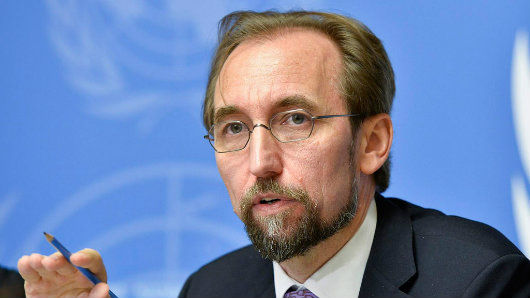Nasheed’s re-imprisonment a “serious set-back,” says UN rights chief
“The return of Mr. Nasheed to prison in our view constitutes a serious set-back to the human rights situation as well as to moves towards finding a political solution in the Maldives. The High Commissioner has therefore urged the Government to consider former President Nasheed’s early release,” a spokesperson said.

25 Aug 2015, 9:00 AM
UN High Commissioner for Human Rights Zeid Ra’ad Al-Hussein has called on the Maldivian government to release former President Mohamed Nasheed following his transfer back to jail from house arrest on Sunday night.
“The High Commissioner has expressed his deep concern to the government of the Maldives after former president Mohamed Nasheed was once again sent to prison late on Sunday,” UN human rights spokesman Rupert Colville said at a press briefing today.
“The return of Mr. Nasheed to prison in our view constitutes a serious set-back to the human rights situation as well as to moves towards finding a political solution in the Maldives. The High Commissioner has therefore urged the Government to consider former President Nasheed’s early release.”
The OCHR had been encouraged by President Abdulla Yameen’s decision to transfer the opposition leader to house arrest, given the “clearly flawed” nature of his trial on terrorism charges, he said.
Become a member
Get full access to our archive and personalise your experience.
Already a member?
Discussion
No comments yet. Be the first to share your thoughts!
No comments yet. Be the first to join the conversation!
Join the Conversation
Sign in to share your thoughts under an alias and take part in the discussion. Independent journalism thrives on open, respectful debate — your voice matters.




